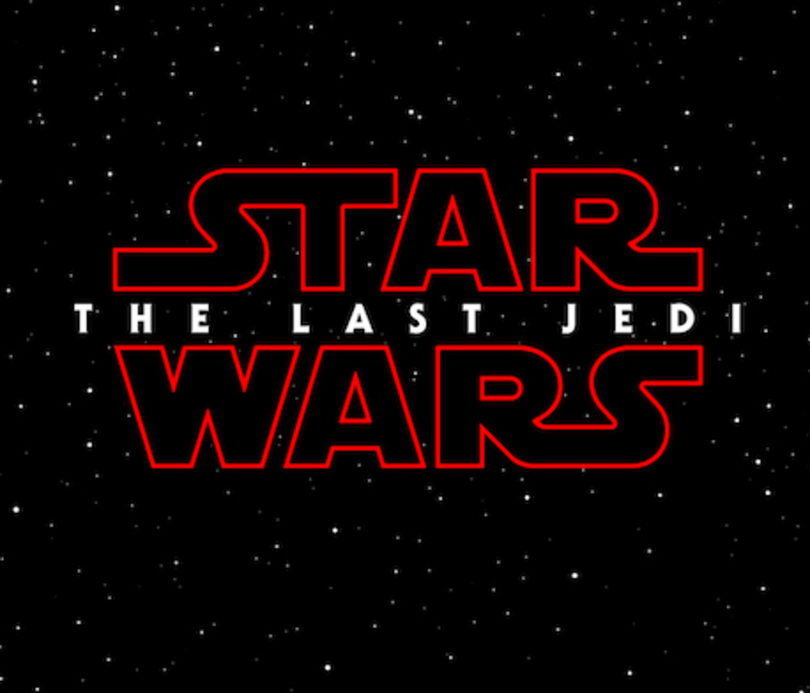The spoilers awaken: Are film trailers giving away too much?

Movie columnist Nicki Zelenak questions whether recent blockbusters like "Star Wars: The Last Jedi" are giving too much away in their trailers just to generate buzz. Courtesy of The Walt Disney Company
A film trailer for the latest “Star Wars” installment was released into the galaxy — only to have its director tweet a warning to fans that watching it may spoil the movie for themselves.
Just before “Star Wars: The Last Jedi” trailer was released on Oct. 9, director Rian Johnson tweeted out the warning in response to a fan asking how much the trailer would reveal. He later clarified there are not definite spoilers in the trailer, but if anyone wants the full twists and turns when going to the theater, they may want to avoid the trailer.
I a legitimately torn. If you want to come in clean, absolutely avoid it.
But it’s gooooood….. https://t.co/Y29K5yz8i4
— Rian Johnson (@rianjohnson) October 8, 2017
Trailer spoilers are a common blockbuster headache, but studios keep releasing them even though most fans hate spoilers. Maybe it’s because as much as fans complain, plot-filled trailers bring more people to the theaters. People want to know they are getting their money’s worth if they are going to spend $10 on a ticket, $7 on popcorn and $5 on a drink just to see some people swing lightsabers around. They want to be sure it’s going to be good.
The “Star Wars” trailer features the characters from the original films and those introduced in the last installment — “Star Wars: The Force Awakens” — including Rey, played by Daisy Ridley, and Kylo Ren, played by Adam Driver.
Mark Hamill’s Luke Skywalker and the late Carrie Fisher’s Leia also make major appearances. There’s some beautiful cinematography of desert and otherworldly landscapes to set the stage for major spaceship battles and training to use the Force.
It’s a lot to take in. Maybe it’s too much, but other films have released more plot surprises in their advertising than “The Last Jedi” has.
“Spider-Man: Homecoming,” the latest incarnation of the web-slinging hero, debuted this summer to great reviews. But fans noticed through its trailers and other promotional material they could piece together much of the film’s plot.
The trailer goes so far as to show major scenes from the final showdown battle. Marvel even released for the MTV Movie & TV Awards the entire clip of Peter Parker’s friend finding out his spider secret. Late-night and early morning shows displayed one of the longest scenes between Aunt May and Peter.
The same issue happened in trailers for the preceding version of Spidey with “The Amazing Spider-Man,” which showed the famous spider bite scene and climatic battle shots. “Batman v Superman: Dawn of Justice” was met with similar complaints in its fan community. The “Terminator Genisys” trailer spoiled the major twist that its rebel hero was actually a villain.
Aside from proving the film’s worth, spoiler-filled trailers generate more buzz. Some fans and entertainment news sources will pore over every detail of a trailer, looking for hints of what’s to come and sharing them online in “trailer breakdowns,” which can gather large audiences.
There’s a large proportion of fans who seek out more information even after the spoiler-filled trailer. I know I’m guilty of both sometimes. I’ve complained that too much was given away in a trailer, but I’ve also sought out more information on my own. The real question is if this extra information will ruin the movie.
It depends on the quality of the film. If you see an exciting trailer but are dismayed upon seeing the movie that the scenes are not as thrilling in context, then yes, spoiler-y trailers do hurt your moviegoing experience. If the film can add another meaning to those scenes beyond what they meant in the trailer, then the trailer might enhance the film.
Should you watch all the trailers and promotion for “The Last Jedi”? It’s a tricky question, one even the Force probably won’t be able to answer anytime soon.




